Quercetin: Top 5 Benefits and How to Use It
Quercetin is a unique nutrient that helps give color to fruits and vegetables. You may have heard that it is essential to eat all the colors of the rainbow for optimal health. Why is this so? In the most recent decade, studies have gained popularity in identifying fruits and vegetables as the primary tools for cancer prevention. Nature provides fruits and vegetables with different micronutrients that protect the plants from sun damage and in turn, pass the protection on to us.
These nutrients are what characterize plants with different color pigments. Quercetin is one of the most widespread color compounds in plants amongst a variety of other nutrients known as flavonoids (3). Flavonoids are often referred to as antioxidants because of their ability to protect the human body from numerous health complications which can lead to an array of diseases and cancer.
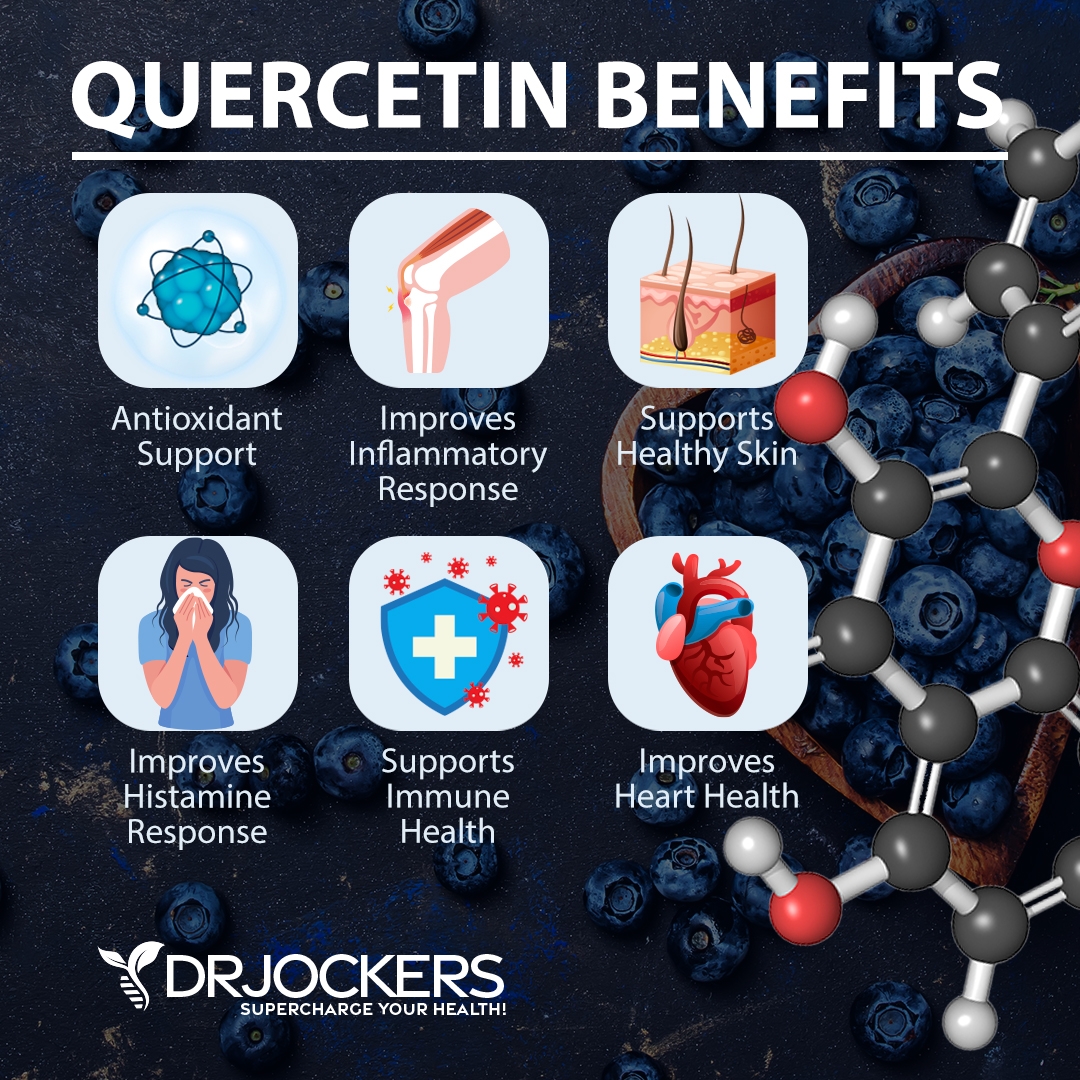
How Does Quercetin Protect The Body?
Similar to other antioxidants, quercetin limits the destructive potential of free radicals as they seek to steal atoms from stable compounds. Due to its low reactivity rate, quercetin has a strong desire to donate one of its electrons to free radicals and thereby suppress its damaging activities.
Quercetin is like a peaceful child that gives up one of his toys to satisfy the demands of another. As a result, the classroom of napping toddlers remains blissfully unaware of the disturbance that one unsatisfied child may have created.
As a result of its generous ability to share, quercetin has not only been characterized as an antioxidant but also has anti-cancer and anti-inflammatory properties which promote health benefits.
Where to Find Quercetin
Just as some foods including sweet potatoes, carrots, and butternut squash are high in orange pigment (characterized by its rich source of beta-carotene), specific food sources are high in quercetin. Some of the highest sources of quercetin can be found in the following foods: (5, 6)
- Elderberries (best source)
- Red and white onions
- Capers
- Berries including cranberries, blueberries, raspberries and blackberries
- Red grapes
- Tomatoes (the darker red, the higher the concentration)
- Apples & Pears (only if you eat the nutrient dense peel)
- Green and black tea
- Dark cherries
- Herbs such as parsley, sage and dillweed
- Red wine and cranberry juice
- Unsweetened cocoa powder
- A variety of peppers including ancho, serrano and hot green and yellow peppers
- Kale
- Yellow snap beans
- Spinach and Romaine Lettuce
Can An Apple A Day Keep the Doctor Away?
Researchers estimate that the average daily Western diet contains no greater than 1.0 grams of cancer fighting flavonoids daily (3). In fact, an individual’s diet is likely limited to 30 mg/day given the lack of plant foods consumed at any given meal (7).
A growing body of evidence provides support in identifying quercetin as a dietary antioxidant. If you may have previously thought that the expression “an apple a day will keep the doctor away” was simply a myth or mom’s rhythmic way at convincing you to eat more fruit, think again.
Quercetin is linked to improving a broad range of health ailments. Reduced risks of cancer, cardiovascular complications, diabetes and asthma have been shown to be a result of using this as a dietary supplement (6).
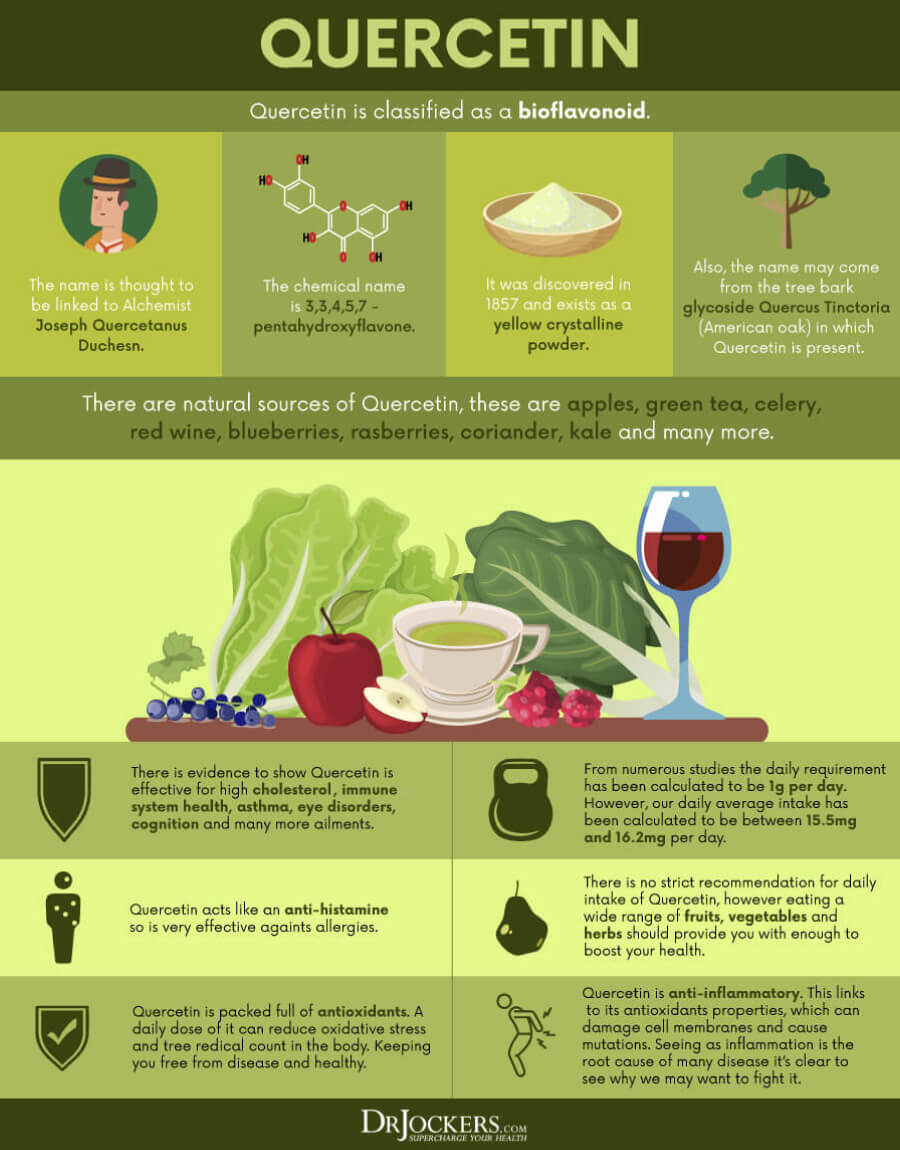
A Synergistic Health Effect
The antioxidant content in a single serving of apples including its peel has repeatedly shown to reduce the risk of a variety of health concerns. Researchers do highlight the potential healing powers of quercetin are often best observed when it works in combination with other nutrients to promote a synergistic effect.
In fact, quercetin supplements often contain other flavonoids such as bromelain which can be found in pineapple to promote an anti-inflammatory response stronger than if quercetin or bromelain were consumed independently of one another. Vitamin C and folate are other compounds which work with quercetin to improve the availability and health response of the antioxidant potential in the body. (1)
Although clinical testing regarding the potential health benefits and possible adverse health response to supplementation remains a topic for continued research, it has possible therapeutic potential in the future.
Quercetin: Cancer Fighting Properties
With the surge in cancer rates in today’s world, alternative health approaches are being analyzed with greater focus than in the past. Modern cancer treatment can cause damage to nerves in a condition known as peripheral neuropathy. Also prevalent in patients with type-2 diabetes, peripheral neuropathy results in the weakness and numbing of nerves and can cause pain. The findings of some studies suggest that quercetin may limit this occurrence. (4)
Quercetin has repeatedly shown to have anti-carcinogenic properties which may prevent the development of certain cancers. Researchers are now beginning to understand the role in which flavonoids can prevent and possibly treat tumor growth. Quercetin treatment may be a possible therapeutic supplement to treat the following cancers:
Breast Cancer: The anticancer properties of quercetin are believed to be a result of several cancer fighting capabilities. It may suppress the activity of the mutant P53 gene common in breast cancer and also responsible for the progression of tumor growth (6, 7).
Leukemia: It has been shown to inhibit leukemic T-cells from progressing in humans by stopping the phase of the cell cycle in which the cancer would be able to duplicate itself (6).
Colon Carcinoma: High dosage amounts of quercetin have also been shown to limit the cancerous cell’s ability to proliferate in the large intestine and cause colon carcinoma (6).
Lung Cancer: In one study, the combination of both apple and onion intake was associated with the reduction of lung cancer by up to 50% in men and women (2, 6).
Neuroblastoma: Developing nerve cells can become cancerous in children and infants. It may prevent toxins from creating oxidative damage to these cells during development which can lead to neuroblastoma (5).
Quercetin May Protect Neurons from Decay
Scientists are researching the ability of quercetin to protect the central nervous system from damage. Consisting of the brain and spinal cord, cells in the brain known as neurons are highly susceptible to oxidative stress caused by free radical damage. Unlike other cells, neurons are incapable of replacing themselves with healthy neurons.
Intrinsically designed to transmit signals including memory, the decay of neurons in the brain is associated with dementia, Alzheimer’s disease, and Parkinson’s disease (7). Quercetin has been shown to provide protection from the degeneration of neurons resulting from a traumatic injury, ischemia (the restriction of blood flow to the heart) as well as heavy metal exposure. Studies performed in animals with spinal injury found that quercetin treatment improved the motor function of the animals following the injury. (5)
Despite the potential for quercetin to be utilized in the prevention of damage to the central nervous system, researchers do warn of potential risks involved with high dose quercetin supplementation. Contrary to previous research, quercetin may be toxic to neurons if the compound is able to pass the blood brain barrier (7). Further studies are still required before high dosage supplementation of quercetin should be added into an individual’s diet.
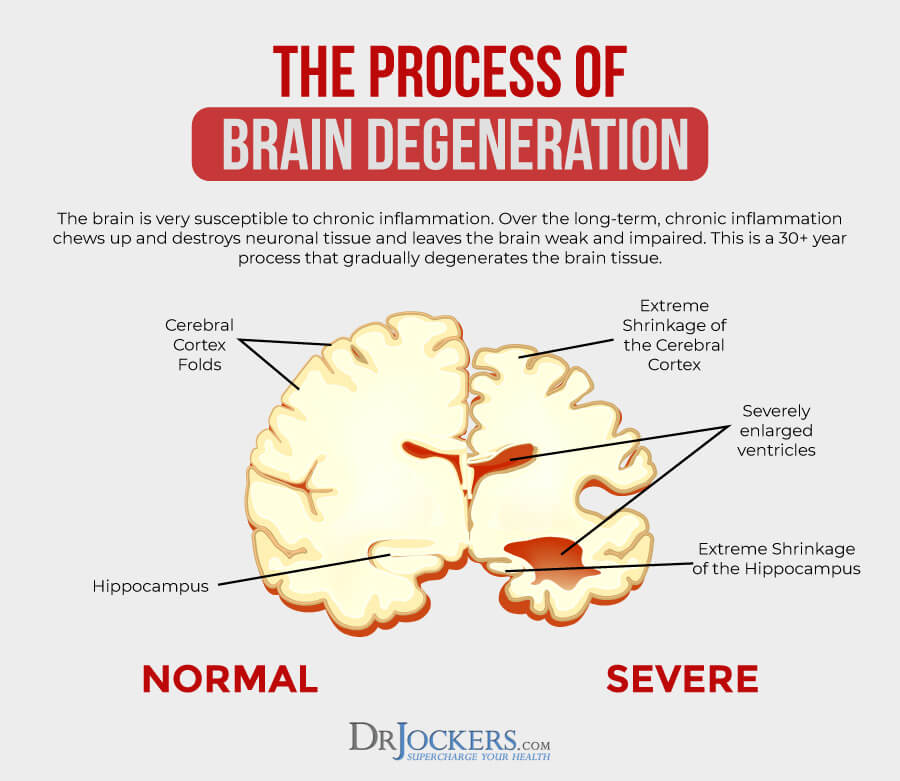
Quercetin Promotes Lung Health
The anti-inflammatory effects of quercetin are well evident in the lungs. Aside from reducing the oxidative stress which results from smoking, it may also decrease the risk of asthma and other lung diseases (6).Quercetin exhibits anti-inflammatory properties in lung tissue by regulating the activities of other antioxidants.
Both SOD (superoxide dismutase) and glutathione are powerful antioxidants present in cells and defend the body against inflammation due to oxidative stress. Following quercetin treatment, researchers found elevated levels of both SOD and glutathione activity. For this reason, quercetin is also characterized as having antihistamine properties because of its ability to combat inflammation associated with allergies. (2, 3)
Quercetin Improves Athletic Performance
High intensity training athletes sacrifice added stress to the body in what can be viewed as collateral damage in order to reach fitness goals. Mitochondria are referred to as the powerhouses of cells because they help to generate the required energy needed for the body to perform its functions appropriately. The mitochondria are also prime targets for stress and oxidative damage because of its high rate of reactions required in order to produce energy.
Increased amounts of quercetin in high stress training athletes has been associated with improved muscle endurance, increased immunity and a reduced risk of infection (1). Researchers were also able to propose that those athletes supplementing quercetin in diet along with other flavonoids and nutrients exhibited the greatest muscle stamina overall.
A Treatment Regimen for Two Epidemics?
Heart failure and obesity are two major epidemics across the world in which our sedentary lifestyles are primarily to blame. The allusion that more money will bring happiness has us working more and consequentially sitting longer, stressing more and eating less nutritiously.
Given the anti-inflammatory responses that quercetin can trigger in the body, researchers propose that it can reduce an individual’s risk of cardiovascular related illnesses and stressors associated with obesity.
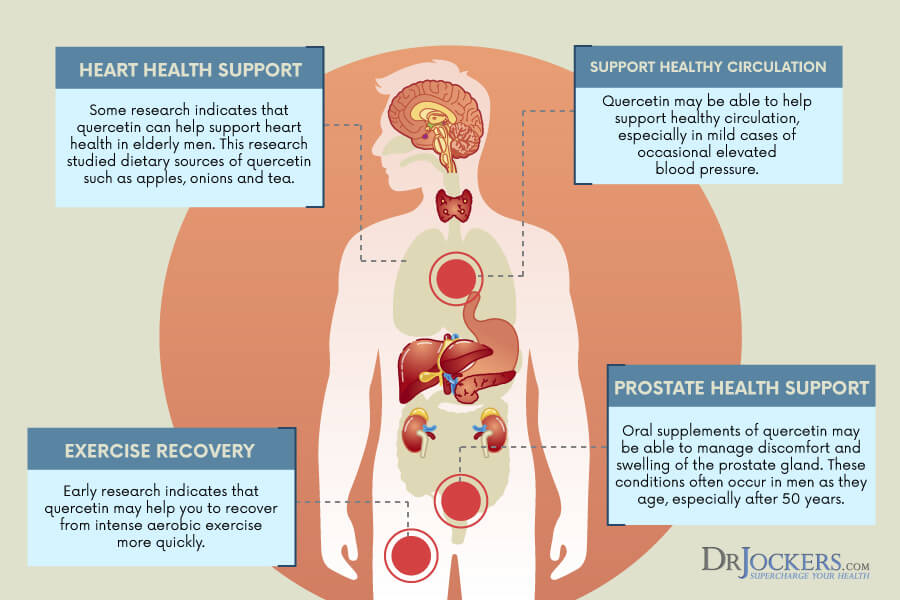
Anti-Inflammatory Benefits
Heart Health: Quercetin may protect against heart complications such as atherosclerosis and high blood pressure. Lipid peroxidation is a process in which free radicals damage tissue and is linked to the development of various diseases. The anti-inflammatory effects of this anti-oxidant as well as the compounds that it is broken down to in the body are linked to neutralizing the free radicals before they can cause damage to tissue. (3)
A 21% decrease in the mortality rates of individuals affected by cardiovascular disease was observed following a minimum of 4 mg/day of quercetin treatment (8). This statistic alone has spiked the interest of supplement manufacturers to promote the heart health benefits of this anti-xidant.
Weight Related Health Concerns: A 2008 study analyzed the effects that dietary quercetin has on both energy expenditure and the rate of inflammation in the body. Researchers found that quercetin increases energy expenditure and decreased inflammation triggered by weight related stress. A reduction in various proteins which are known causes of inflammation in obese individuals was apparent but dose risks have not yet been fully evaluated in clinical testing. (8)
A combination of the anti-inflammatory benefits may provide reason as to why quercetin has also been associated with a lowered risk of type-2 diabetes (6). By now you may be curious if a quercetin supplement is right for you?
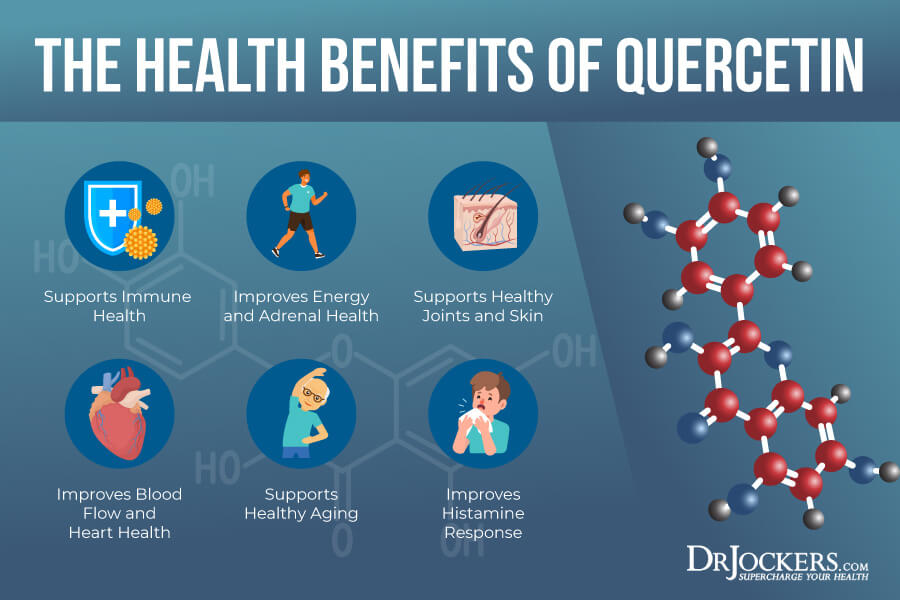
Is a Quercetin Supplement Right for You?
Unfortunately, only 30-50% of quercetin ingested is able to pass through the gastrointestinal tract and absorption occurs within 30 minutes of ingestion (7, 8). As a result, further studies must be performed in order to determine how and when quercetin is broken down in the body and the biological effects of its metabolites.
As a result of this low absorption rate, manufacturer’s recommendations on supplements are about 400-1,200 mg/day depending on the health concerns in which an individual may be aiming to treat (7). I also like combining quercetin with resveratrol for a powerful synergy and I personally use the Resveratrol Power here on a daily basis.
Promoting Quercetin Bioavailability
Given the evidence of how quercetin is best attributed to health benefits, there are a few tips in which you can use to make quercetin best available for your body:
- When consuming foods with this antioxidant, add foods high in bromelain and vitamin C into recipes. For instance, squeeze some lemon juice onto your salmon tossed with capers or add chunks of pineapple into your red wine for a healthy sangria.
- Blend in berries or whole apples into your post workout smoothie or juice kale and combine it with iced green tea and lemon for a recovery drink following muscle training or long distance running.
- Increase your intake of dietary quercetin during allergy season to offset the inflammatory response that you may suffer from such as itching or swelling.
When To Use Quercetin Supplements:
I use quercetin to help strengthen over reactive immune systems, reduce excess histamine activity and improve overall wellness. The most common complaints that I use it for are for sneezing, coughing, watery eyes, respiratory problems and histamine intolerance. The product I use with these conditions that works better than anything I have ever used in the past 10 years is Allergy Defense.
This is a combination of vitamin C, bromelain, citrus bioflavonoids, stinging nettle and N-Acetyl Cysteine. This synergy works remarkably well to reduce histamine activity and restore natural harmony to the immune system.
If you want to work with a functional health coach, I recommend this article with tips on how to find a great coach. On our website, we offer long-distance functional health coaching programs. For further support with your health goals, just reach out—our fantastic coaches are here to support your journey.
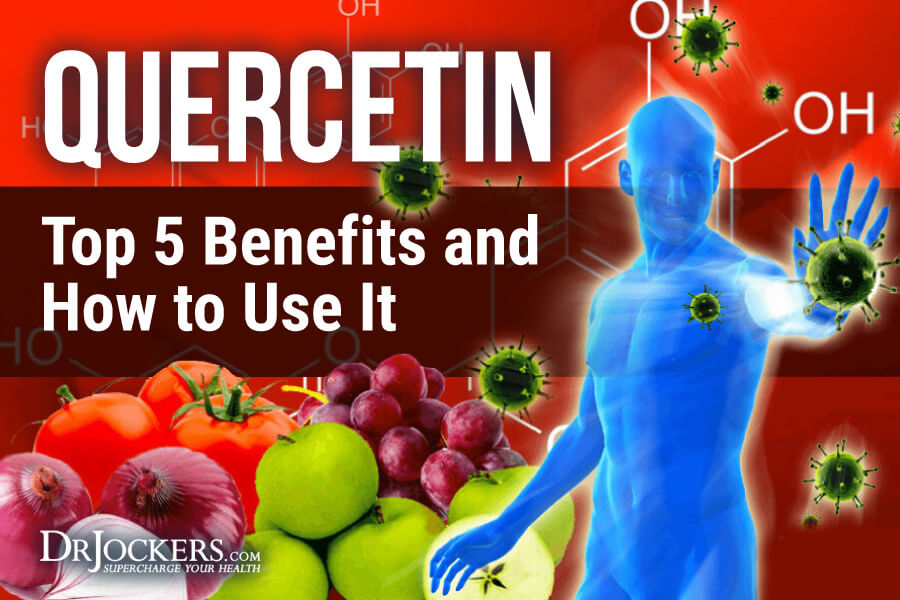
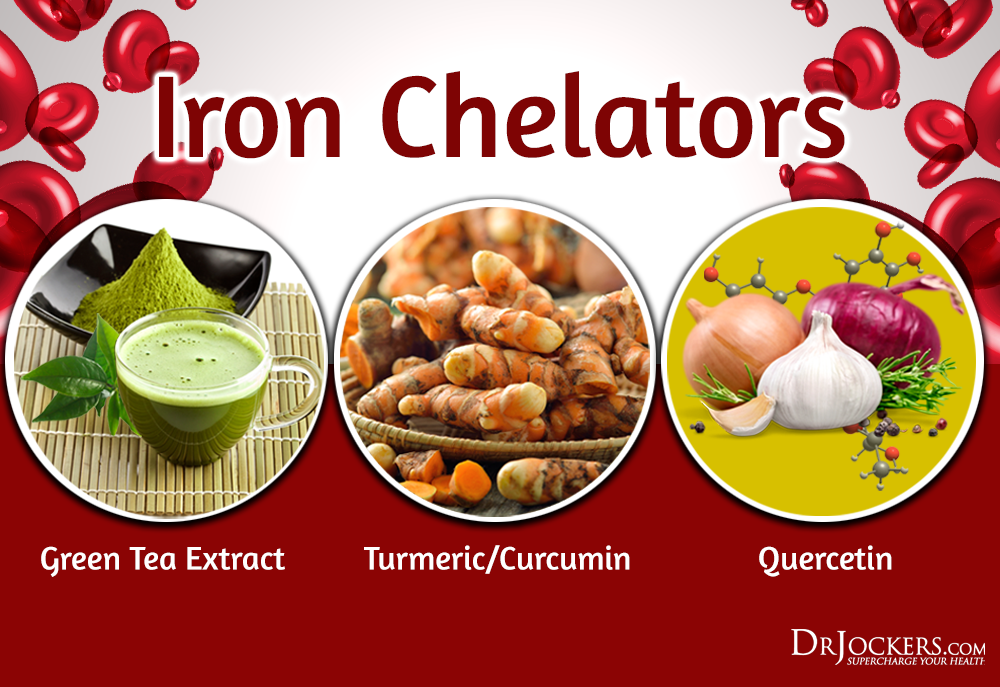
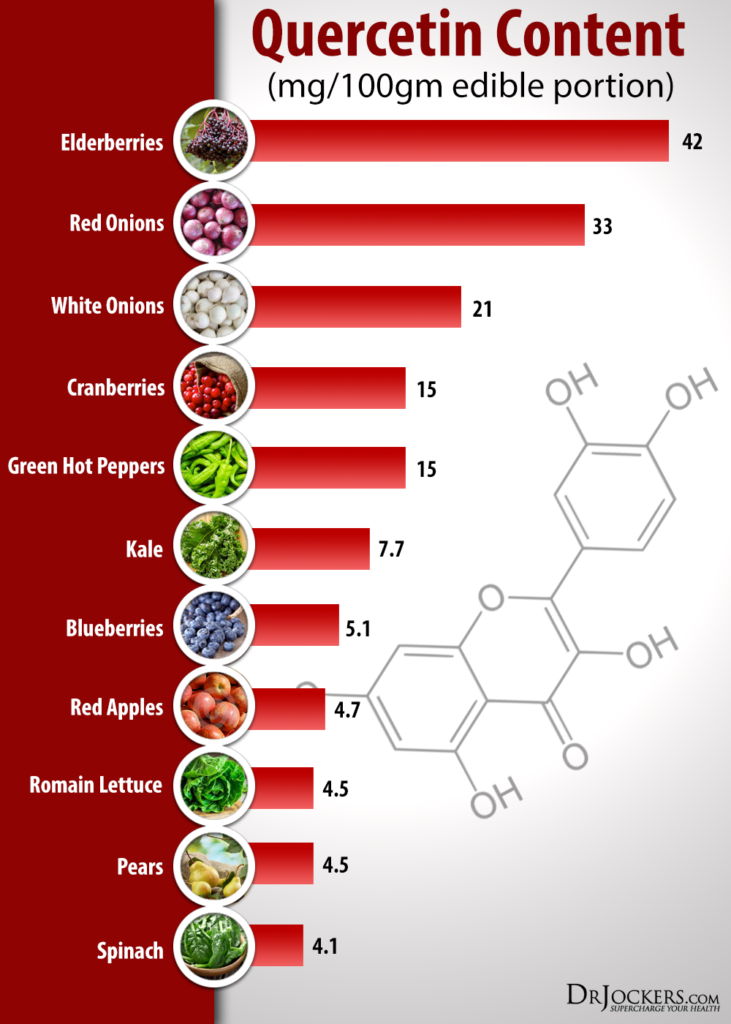
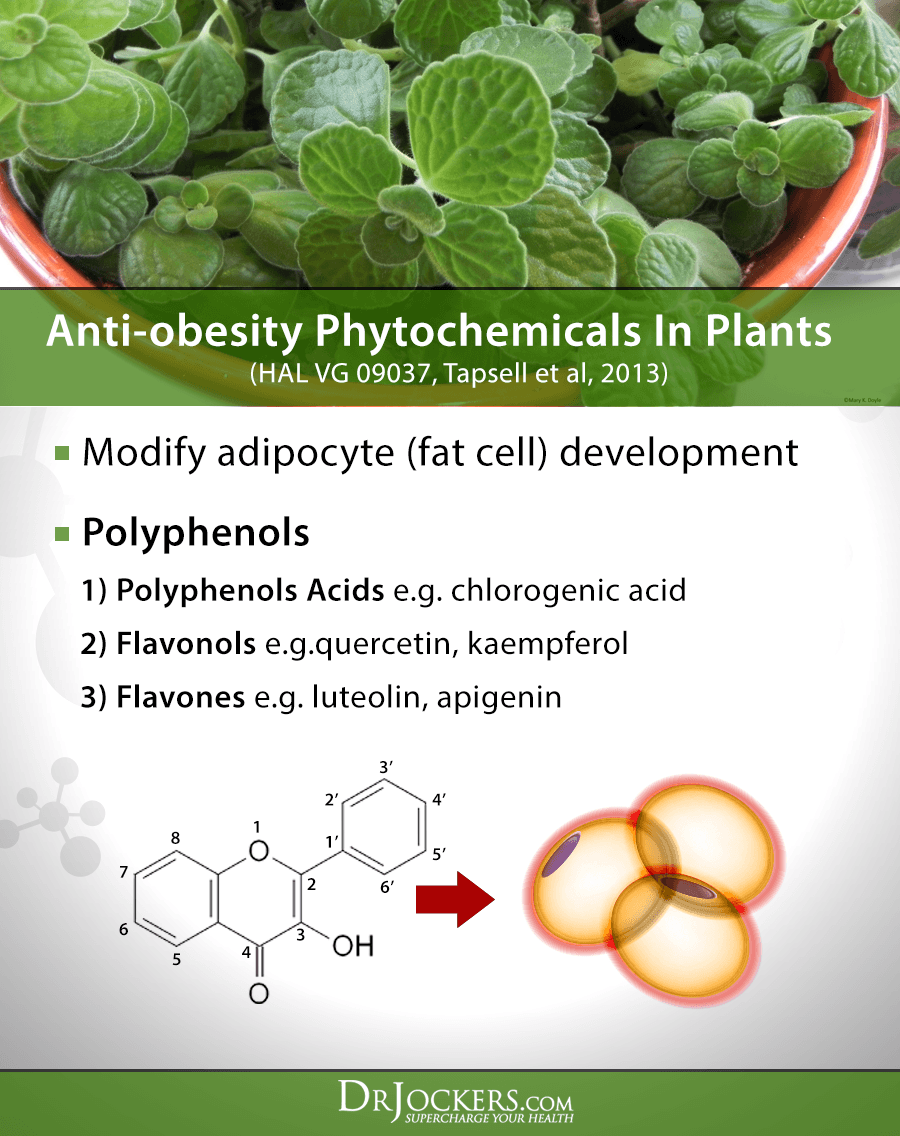
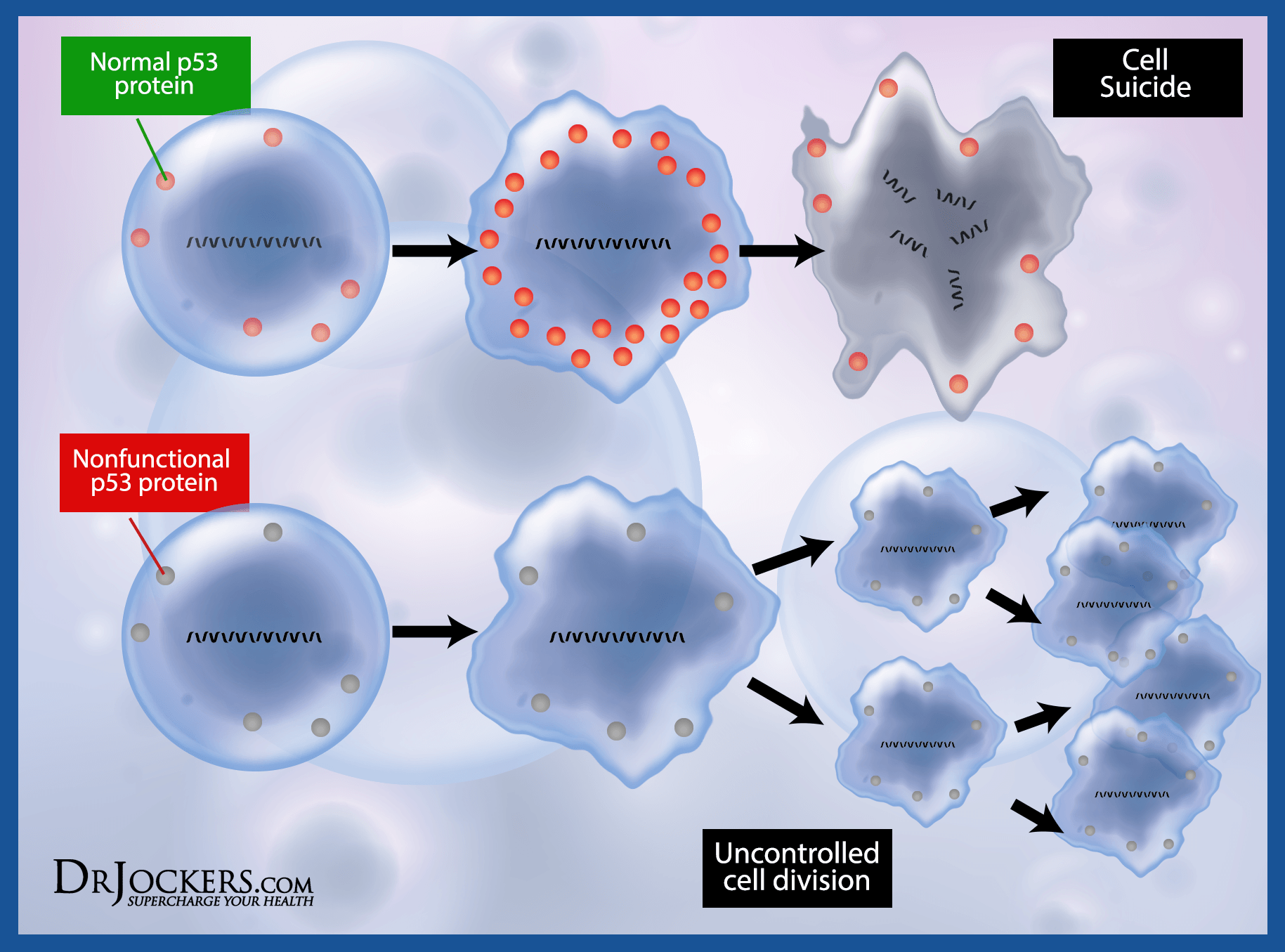
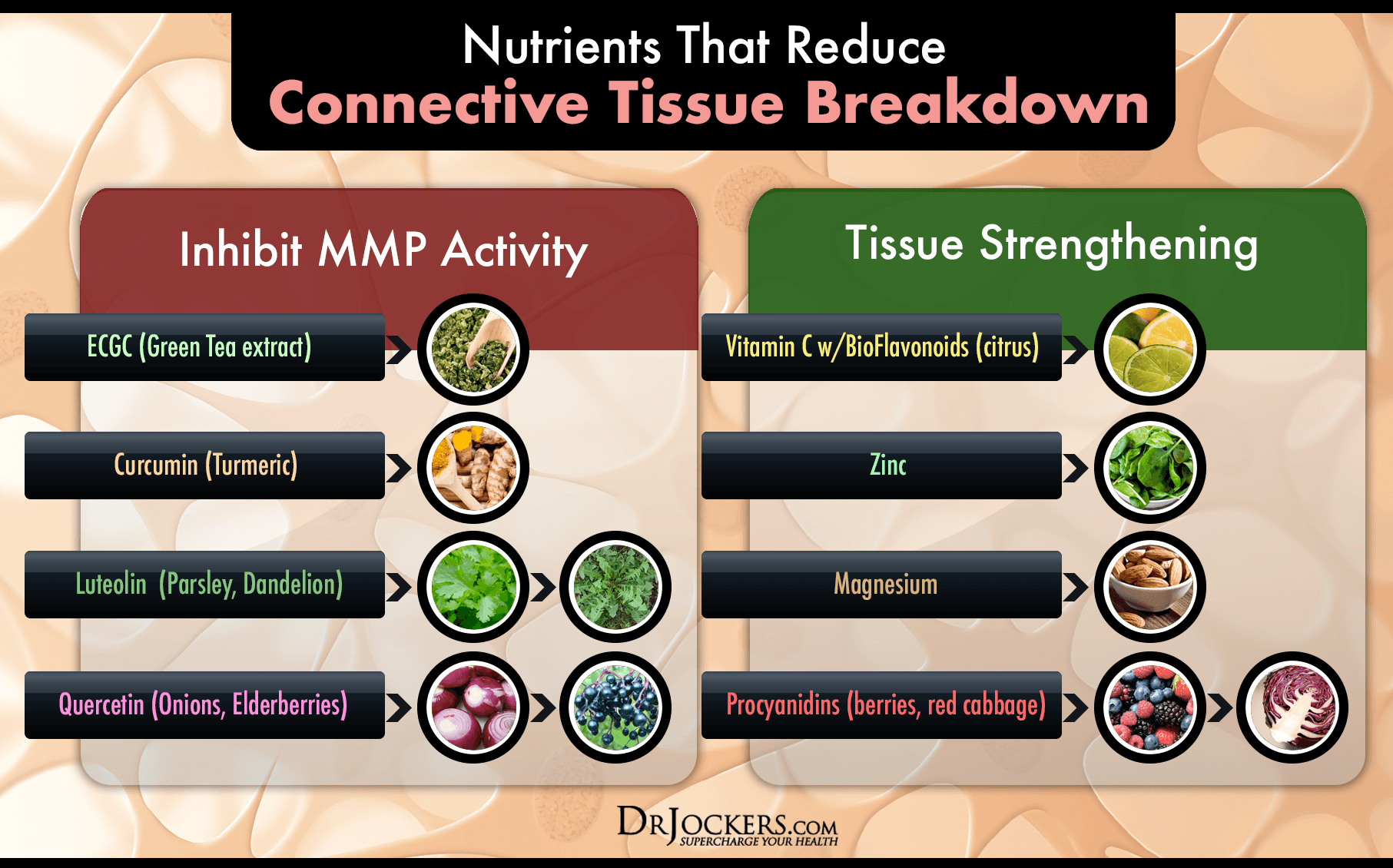






How to cite this website by APA method?
It is actually God (the Creator of what some call nature) who provided the color to fruits and vegetables called micronutrients for protection against sun damage and, in turn, passing the protection on to us. He loves us!
Thanks for giving me a good laugh this morning!
DOSENT TEA LEAF CONTAINS THE MOST QUERCETIN ?
Yes tea leaf can be a decent source but not the top source.